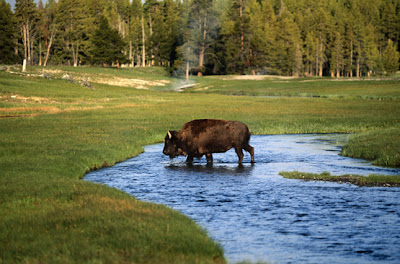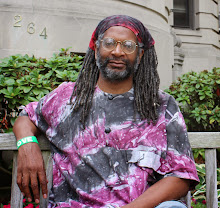A recent book I'm reading on christian evangelization (“The Master Plan of Evangelism”, Robert E. Coleman, abridged) points to Jesus himself and how they saw his techniques for spreading the "kingdom of G-O-D". It is apparent in the book that they considered the idea something that Jesus felt it necessary to find an elite male leadership for, hence the apostles. They reported that Jesus chose to resist handing over the ideas he was spreading to the growing excitement of the masses, that he felt if more important to develop the ideas through that vanguard of men, a nod to the leadership of the few, reminiscent of the shepherd/sheep metaphor that shows up repeatedly in the bible stories. It suggests that the ideas Jesus espoused were clearly not ideas that actually lived in the hearts and minds of the people, but something that had to be cultivated and constantly spread by a select few that hold sway over the masses - a perfect recipe for exploitation, hence our current "religious leaders" in which some of the most reprehensible and misguiding humans are included. This comes from a cultural perspective that seems to be steeped in the agriculture/animal husbandry idea divorced already from the indigenous concepts of empowered interdependence....or at least that's my early sense of it. All this is to say that this dynamic of mass dependency and disempowerment may come from the ideas of Jesus himself, suggesting to me that he was not the great man that many think he was, that he had deeper ideological flaws and misconceptions about humankind than many would[n't] imagine or care to think about and that surely, he was merely A son of G-O-D, not THE son of G-O-D - christians are clearly following the wrong man, but Jesus acted correctly if he was trying to set up a system of dependency, human disempowerment and disconnection that has been a perfect partner to colonialism and imperialism.
~~~~~~
 |
| A popular, widely distributed image of "Jesus". Was he THE Son of G-O-D or merely A son of god/desses? |
This perspective comes out of my on-going critique of the presence and effects of christianity and predatory mission work on Africa in particular and indigeny in general. It is clear that there are some very powerful critiques of christianity and the political and cultural machinations of christians in the world, particularly as they relate to and support the system of colonialism, capitalism and imperialism, all functionally negative in the history of humanity and indigeny. One of my larger points is that christianity, generally considered a social and spiritual good in the world, is highly questionable and operates in a negative manner in relationship to other political dynamics already mentioned and that the conversation around its role in the world must break through the tacit and default approval that christianity enjoys in the world even as it claims to be an embattled underdog of purity and ethical virtue.
My response above, inspired by my early understandings of the book mentioned, is part of a crystallization of my perspectives on why christianity works and operates in the way it does, seated so comfortably at the (conservatively) right hand of the G-O-D of colonialism as opposed to being the true force for liberation that some of its adherents seem to suggest it can be (and even that seems to be more an anomaly than a general feature of its ideology) and that humanity should expect it to be.
Without this on-going and developing critical engagement, christianity will continue to be a disruptive, distracting and destructive force in the necessary and coming redemption of humanity from the oppressive forces of colonialism, capitalism and rampant and violent patriarchy.
















